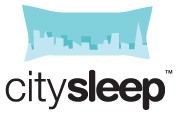Hotels can often make the biggest impact to their bottom line by increasing the proportion of reservations they receive through their own direct booking channel. But it would seem many independent properties are underinvesting and undervaluing the impact that a direct booking can have on their business.
With such a large proportion of business and leisure travel researched and booked online, it is critical not only that your property has an impactful online presence but that you have an effective corporate website with integrated online booking function.
Offering guests the chance to book directly through your website, delivers the complete guest profile to you, an opportunity to earn higher revenue and ultimately reduce your cost of by decreasing your third-party sales commissions.
Customers that book direct are typically less motivated purely by price and are open to build loyalty through service and added value features. As an operator with your own direct booking engine you can control the booking experience and have the opportunity to develop a relationship with the customer.
In “Hotel Distribution Data Management And Analysis" HEDNA discovered that just 48% of independents look closely at cost of distribution. Independents were also the least likely to use analytics to make decisions about distribution (67% relied on them), compared to chains (81%) and management companies (72%).
The survey set out to quantify current practice in data collection, storage and usages, as well as test respondents’ overall data satisfaction across a global audience of hotel, management companies and independents.
Overall, the paper revealed something crucial: a lot of hotels just aren’t focused on the cost of distribution or growing their direct channel.
OTA versus booking direct
Employing a direct booking strategy can help independents to shift those reservations that normally take the OTA (Online Travel Agent) channel. The classic booking path for a guest tends to be a mix between visiting an OTA website and your hotel corporate website.
Prospective bookers often use the OTA site to start their research to create a shortlist of potential properties to stay at. An unsatisfactory user experience leads to frustration and often the visitor heads back to the OTA site to complete the booking.
An integrated online hotel booking engine enables guests to book directly through a seamless experience through the hotel website.
The cost of your hotel’s distribution
Any reduction in the OTA commission costs will go directly to an operator’s bottom line. Plus, often the booking value of a direct reservation can be higher than that of an OTA booking as the profile of the guest may be somebody who is less price sensitive.
Most operators understand that bringing in more direct and reducing the number of OTA bookings will ultimately help increase profits.
As an independent operator it would be great of course to have the majority of bookings come direct without paying commission - but in today’s marketplace it makes sense to balance direct business along with the OTA channel “turning the tap on” for these reservations when conditions dictate it.
But with an OTA booking comes a heavy cost with OTA commission in a range of up to 15-25%. It can be quite common for operators to be surprised as commissions mount up as they are considered “a cost of doing business”. So, they need to be taken into account when budgeting the distribution strategy and seen as a cost.
Hotels need to rethink distribution costs
To maximise revenue, operators needs to shift to a direct booking mindset. Rather than seeing their own website as a fixed expense, it needs to be regarded as a channel that can be a revenue generator.
So as an operator think about the level of OTA commissions paid and consider shifting that investment into a direct booking channel and the potential that brings to increase profit margins.
Driving more direct traffic to your hotel website
As you might expect, one of the best ways to increase your direct booking revenue is to drive more traffic to your website. With that in mind, we have provided 20 tips on how to be proactive in developing an effective marketing strategy to grow your direct bookings:
- Focus on guest satisfaction – something only you can do whilst the guest is at the property to build loyalty and a direct relationship by making sure they have a great stay experience
- Try to understand why the guest chose your property and the booking journey they took to understand how you can influence it
- Understand how to attract those searching for hotels early enough in their search behaviour rather than by competing with OTAs at the booking stage by creating content on your website around local attractions, events, service, etc.
- Use your social media skills to reach out and engage with a targeted audience, build your unique personality, brand awareness and start a conversation with your followers
- Elevate the reasons to book directly with your property, make sure that they are visible on your website and that the site is responsive to deal with visitors using a mobile to do their research
- Mobile is becoming a more and more important aspect of the booking process, so make sure your website is responsive and caters for website visitor on a mobile device
- The fewer types of rates you have on display, the better. This makes comparing different offers to each other easier, so your guest knows that they are getting the best deal with booking direct
- Offer additional ancillary services only to those guests that book direct rather than through third-party channels
- Employ a sound revenue management strategy to make sure that direct bookers get availability of rooms during peak periods
- Help customers understand what options are available to make it a smooth and simple buying process
- Provide a direct booking experience whether on a mobile or desktop that should be an easy-to-use, engaging customer experience for example like Happybooking
- Build a database of email addresses and social media fans that you can build a loyal following with through targeted communications
- Have an annual distribution strategy plans how to mix your use of channels over the course of the year as each channel is valuable at different times
- For your approach to revenue management research the competitive positioning of your property, location and how your property appeals to different sources of business
- Once you have identified your best-selling room types, consider closing these out earlier on OTA channels so that guests looking to book these have to book direct
- When a guest makes a direct booking, remember there is a lot of valuable information that you can gather about their buying habits, which device they made the booking on, etc.
- By keeping a good track of website analytics, you’ll see more insights on customer behavior and conversion rates to pinpoint any changes you may need to make on the website
- Driving traffic to your site can be achieved by applying a few SEO basics for search engines
- In addition, regularly post engaging local content to attract and keep visitors coming back to your website
- Show examples of “social proof” such as testimonials and review site widgets as word of mouth marketing is a powerful resource to leverage
Take Away
Happybooking have always focused on creating a user-friendly property management system based in the cloud that can help property owners improve their revenue performance with a direct booking engine, generate more profit by lowering commission costs and reducing admin time. So, take a quick tour to see how it works - click here.
Happybooking is first and foremost a property management system. That means they help you with the boring admin and automate tedious tasks giving you more time to focus on your guests. On average Happybooking customers can get back up to 10 hours per week – think what you could do with that extra time!
Our guest blogger is John Kennedy.
John is a hospitality consultant, dedicated to helping increase profits through marketing, revenue management and efficient operations at https://kennedy.marketing/
Image source: www.pexels.com



